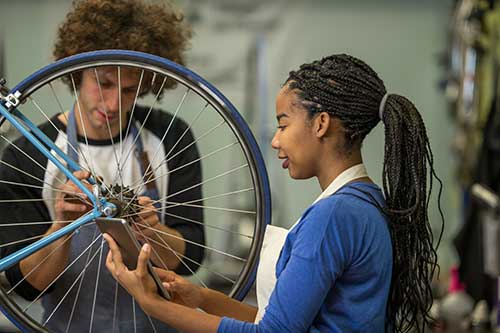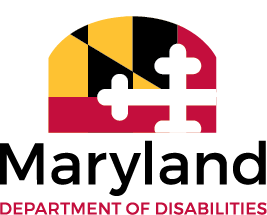Getting Ready to Work!

Getting Started with Your Job Search
Let’s explore some of these questions to help you find and keep a job as well as moving ahead in your career. If you have someone helping you, they can work with you as you consider these questions and develop skills for successful employment.
Finding the Right Job
Tips to help you get and keep the job you want. Finding the Right Job
Job Readiness
10 questions to ask yourself before you start looking for a job. Job Readiness
Expectations
Learn about the realistic expectation employers and employees have. Expectations
Searching for a Job
Steps you can take to help decide what the best job for you might be. Searching for a Job
Finding the Right Job
American Job Centers and Division of Rehabilitation Services staff can help you determine a good job match for you.
Here are some tips to help you get and keep the job you want:
Job Readiness – 10 Questions to Ask Yourself
It is a good idea to focus on these strategies to increase your chances of a successful placement. If you do not currently possess these skills, you should be upfront with the employer about your current job readiness. Perhaps you could start under an extended probation period. This would allow time to demonstrate mastery of the skills required for on the job success.
Expectations: Employee and Employer
Employee Expectations
Here are a few things that you should expect from your employer:
Employer Expectations
Here are a few things that your employer will expect from you:
Necessary Skills for Work Success
Practicing and using the following skills are sure ways to increase your chances of success in the workplace:
Searching for a Job that’s Right for You
Have you figured out what might be the best job for you?
If you haven’t, here are steps you can take to help make that decision.
Know yourself, your interests, your skills and your abilities.
- What type of job would be a good fit?
- Do the hours and time of day match your needs?
Make a list of the jobs that most interest you.
- What is it about the jobs that you find interesting?
- What are the tasks or environment you think you would enjoy most?
- Are these characteristics found in other jobs?
Research jobs.
Research jobs at your local American Job Centers, at the library or on the Internet.
Make use of volunteering or internship opportunities .
Volunteering or internship opportunities can help you learn about a job. Division of Rehabilitation Services or staff at your local American Job Center can help you find such opportunities.
Conduct informational interviews.
An informational interview involves talking with people who are currently working in the type of job in which you are interested. Asking questions helps you to gain a better understanding of that particular job. Be sure to practice before hand.
Create a résumé.
Once you know what your ideal job might be, create a résumé. Staff at your local American Job Center can help with this task.
Refer to the fact sheet entitled Where the Jobs Are.
This fact sheet will answer many of your questions about where to find a job that is a good match for you.

